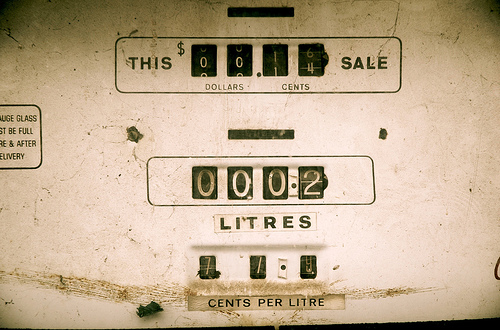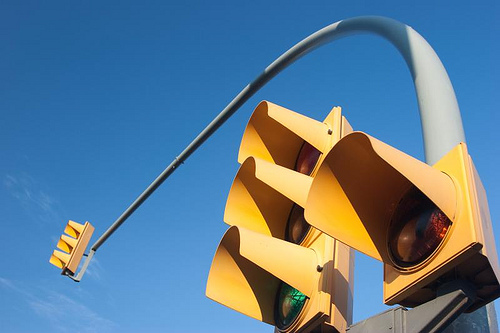
(photo credit: Drew__)
If you’ve been in Europe recently, you’ve probably noticed all those extra digits in the price of “petrol.” In the U.S., we’re horrified at the idea of paying $4 a gallon for gas, but in Norway they’ve already blown past the equivalent of $9.
But… why? Is it harder to pump oil in to Norwegian gas stations? Is greater demand among the Norse driving prices up? Not even.
There are a few reasons, but according to Aaron Smith at CNN, it’s pretty much all about the government. Governments can either charge their citizens extra to buy gas (by taxing it) or the pay them to buy gas (by handing out subsidies, which lower the price per gallon).
Taxing gas is useful because the money pays for government programs. And handing out subsidies is useful if you want to keep your population happy. (You see this a lot in oil-producing nations like Saudi Arabia. It’s hard to be angry at the super-wealthy ruling elite when they’re basically paying for your gasoline.)
The moral of the story: Stuff is only worth what someone says it’s worth. $3 or $10, you still need it to make your Hummer go.
How much do you think you should pay to fill up your gas tank?
